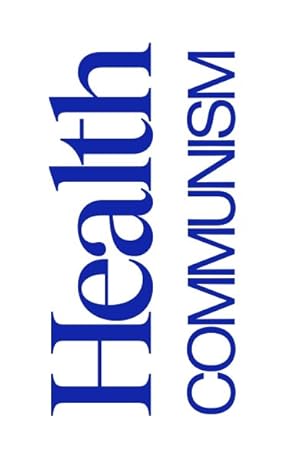(Thought Soup) Health Communism - "Surplus"
Hi everyone, I wanted to offer a few quotes that caught my attention while reading the introduction and chapter 1 from Health Communism by Beatrice Adler-Bolton and Artie Vierkant.
Health under capitalism is an impossibility. Under capitalism, to attain health you must work, you must be productive and normative, and only then are you entitled to the health you can buy. (Introduction)
... surplus population has become an essential component of capitalist society, with many industries built on the maintenance, supervision, surveillance, policing, data extraction, confinement, study, cure, measurement, treatment, extermination, housing, transportation, and care of the surplus. In this way, those discarded as non-valuable life are maintained as a source of extraction and profit for capital. (Chapter 1: Surplus; page 5)
... biocertification does not mean resisting "diagnosis" or identification It means resisting the leveraging of these certifications by capital and the state. (Chapter 1: Surplus; page 10)
Through the money model of disability we can understand the warehousing, surveillance, treatment, management, and diagnosis of difference as an enormous sector of our economy, circulating trillions of dollars through global markets each year. (Chapter 1: Surplus; page 17)
Reflections
I've been in kind of a bleak state of mind after reading this chapter, and I suppose it's worth saying explicitly that's less the fault of the authors and more the fault of the system that they're documenting that we've all been living (dying) in.
I don't know why exactly, but reading chapter 1 got me thinking about Juliet Nebolon's Settler Militarism (which we read a few months ago in this group). I've been thinking about how throwing vulnerable people - generally people made marginal or peripheral by the state - into vast, violent, administrative state and private systems was critical to the settler military project that the United States pursued in Hawai`i and across the Pacific Ocean.
The health care system Adler-Bolton and Vierkant take account of seems principally exploitative before it goes on to be ... anything else. I hope that's not controversial or exceptional to say. Trillions of dollars swirling around disabled and sick people in fees and various nebulous expenses feels, essentially, exploitative. Keeping people alive in capitalism (let alone sustaining people's needs) is just a means to continue billing services.
That's not all to say that these systems don't keep people alive who may not have been alive if they had been born 100 years earlier; it's to reiterate what the authors say on page 5 about how this "surplus population" becomes the nexus around which trillions of dollars swirls. The actual lives of people (let alone the quality of people's lives) doesn't seem to register as an index that the myriad trillion-dollar healthcare industries care about at all.
I know that people in this group have more experiences to draw on, either firsthand or secondhand through caring for loved ones, and I would really love to hear your stories, if you're open to sharing them. I want to hear from you if you have something to share after reading this chapter. If you want to chat on Saturday, please read on; if you'd like to reach out some other way, consider signal, bluesky, twitter/x, mastodon, email, etc...
Chat on Saturday
As usual, we'll have our video chat on Saturday at 12pm ET; you can join here. We'll talk about chapter 1 of Health Communism and whatever else comes to mind.
Buy the book
If you haven't bought the book yet you can still catch up. You can buy it here. Purchases made through the Workshops4Gaza fundraiser send proceeds (or more, if you opt to donate more) to The Sameer Project.
If you can't buy the book (or can't buy it from Open Poetry because of shipping constraints or something), please consider making a donation directly to The Sameer Project, if you have the money for it. If you don't please consider sharing the book (or the reading group) with comrades and other like-minded friends.
